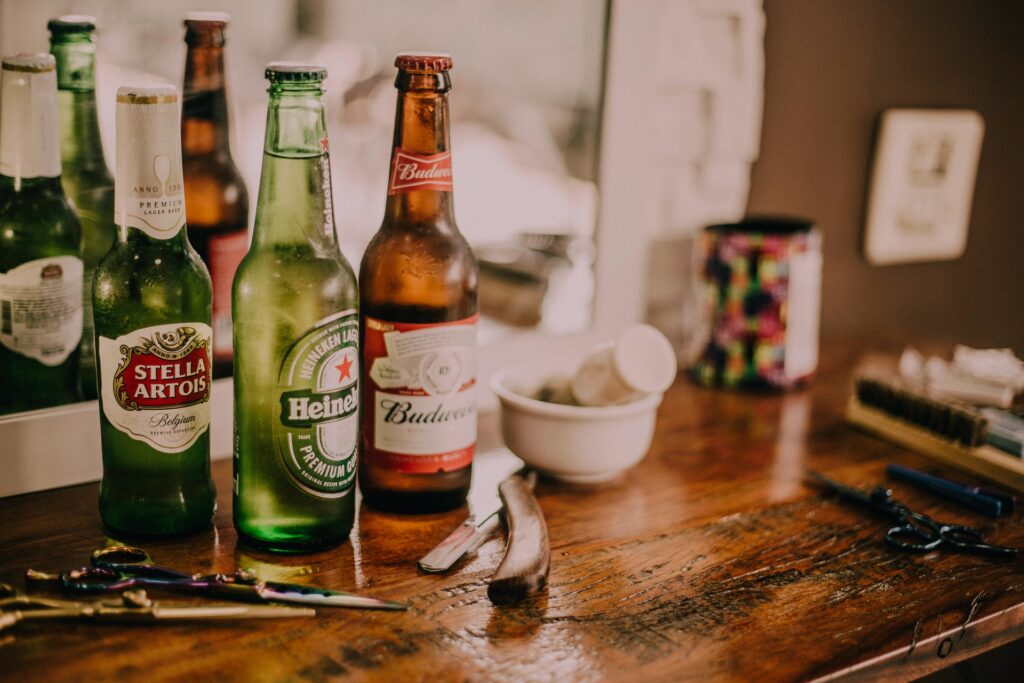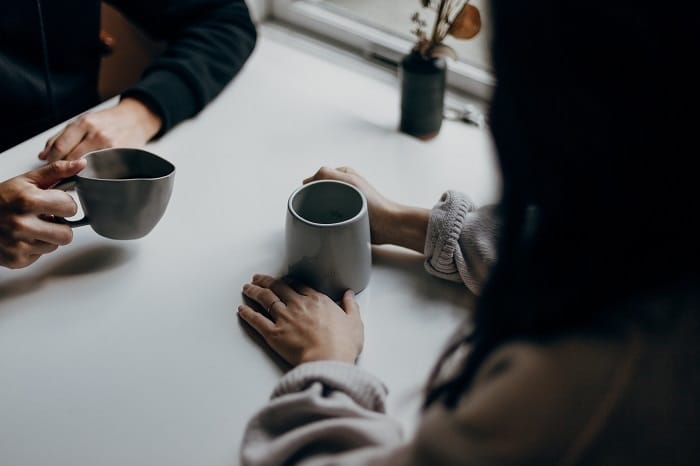It can be extremely difficult to stop drinking alcohol, but you need to start by examining your relationship with alcohol.
After this, the focus will be looking at how you can manage any cravings and triggers through self-care and plenty of new routines.
Whether you’re seeking to give up alcohol entirely due to alcohol addiction or just cut back, this guide will help you navigate a plan that works for you.

Alcohol is known to impact your health in multiple ways. [1]
Even drinking occasionally and moderately can make you feel hungover or groggy the next day. If your drinking habits are regular or you have an alcohol use disorder, you’ll notice you may have health effects such as:

An important first step is to look at your relationship with alcohol. You can examine how much you actually drink and why you drink.
You might think you don’t drink that much, but you’re worried your alcohol intake is more than usual. You may have a craving for alcohol. Or, you may not experience cravings, yet one ‘quick’ drink or glass of wine regularly turns into four or five.
You might be finding it difficult to stop, especially around certain friends or people in your life.
Realising why you drink or are heavy drinking is also essential.
Knowing why you drink can help you to explore other ways in which you can address these concerns. Some of the most common alcohol triggers include:
Being aware of your alcohol triggers can help you manage your relationship with alcohol better. [2]

Letting those close to you know about your wish to stop drinking alcohol is a great way to help encourage you to stop drinking.
Family, friends and loved ones can help support you and offer a platform for you to talk about what you’re going through.
If there’s an event that involves alcohol, you may also feel more comfortable bringing a supportive friend along with you to help you avoid drinking alcohol.
Reaching out to other sober people can help you feel less alone in your journey to sobriety. This could be through 12-step groups in your area such as Alcoholics Anonymous or SMART Recovery.
Generally, when you turn down a drink you can expect to be asked why.
You don’t have to give details, but preparing a response can help you to feel more comfortable.
A response might include:
Research has revealed that most people believe that alcohol makes them feel better. [3]
Alcohol can, then, quickly become part of your routine to relax if you feel stressed.
Instead of turning to alcohol, why not find a replacement non-alcoholic drink like a warming hot chocolate, tea or a milkshake?
You could also try meditation or yoga for your mental health, or take comfort in your favourite film.
People who drink a lot or regularly might experience alcohol withdrawal symptoms when they try to stop drinking as their body finds it difficult to cope without alcohol. [4]
Alcohol withdrawal symptoms include:
If you used to drink heavily, it is best to speak to a healthcare professional first before you stop drinking as symptoms of alcohol withdrawal can become life-threatening.
If you experience any of the following withdrawal symptoms, you must seek emergency medical care immediately:
These symptoms could mean you are experiencing a severe form of alcohol withdrawal called delirium tremens. It is essential to get help straight away if you think you are experiencing this.
Call Rehab 4 Addiction today for further support and advice about quitting alcohol. You may need to enter rehab to detox safely.
It can be overwhelming to suddenly quit drinking alcohol, but good self-care practices can help you overcome these feelings.
Prioritising wellness is an important factor in recovery.
Some tips for maintaining a healthy lifestyle include:
It can also be a great idea to entertain yourself through satisfying hobbies such as running, drawing, playing an instrument or learning a language.
Spending time with friends and enriching your life with other social situations that don’t involve alcohol can be a fantastic healthy alternative activity to drinking.
Your path toward recovery should include lots of support from friends and family.
[1] https://www.niaaa.nih.gov/alcohols-effects-health/alcohols-effects-body
[3] https://www.sciencedirect.com/science/article/abs/pii/S0005796716301000